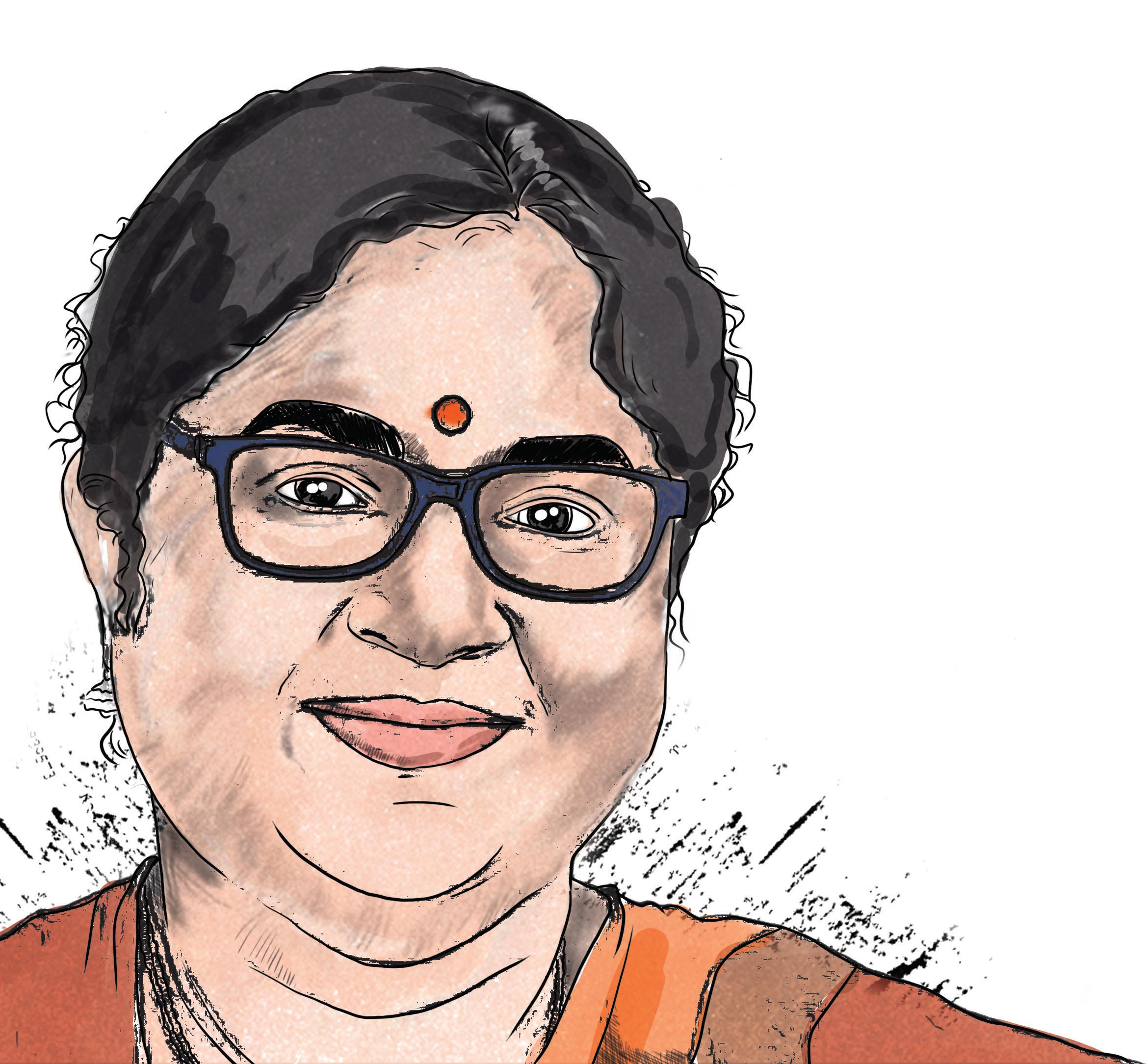Prøve GULL - Gratis
'Commission will provide legal aid to protect rights of elderly'
Down To Earth
|April 16, 2025
The Kerala Assembly has on March 19 passed the Kerala State Elderly Commission Bill, 2025, which allows the government to set up an Elderly Commission to protect the rights of the senior citizens and promote their welfare. In a conversation with K A SHAJI, the state's Minister for Higher Education and Social Justice R BINDU shares the mission of the country's first such commission. Excerpts:
-

What influenced your decision to propose the establishment of the Elderly Commission?
Eight years ago, S Irudaya Rajan [from the Centre for Development Studies in Thiruvananthapuram] conducted a study in the Kumbanad region in Pathanamthitta district. His research revealed a stark reality: elderly people live in challenging conditions due to the emigration of younger members of their families in search of employment and improved living conditions. As the trend is widespread now, a significant number of elderly across the state live in isolation, often with only pets for company. The latest census indicates that the elderly constitute 12.6 per cent of the state's population. By 2030, the elderly will constitute 25 per cent of the state's population. Then there is feminisation of ageing. Since women have a greater life expectancy than men, many elderly women find themselves alone and widowed, frequently lacking income and possessing minimal assets, thereby relying on family for assistance. Hence, elderly care requires immediate attention and effective solutions.
Several such programmes introduced in the past have largely failed to yield the intended outcomes. What makes you optimistic about the effectiveness of the proposed commission?
Denne historien er fra April 16, 2025-utgaven av Down To Earth.
Abonner på Magzter GOLD for å få tilgang til tusenvis av kuraterte premiumhistorier og over 9000 magasiner og aviser.
Allerede abonnent? Logg på
FLERE HISTORIER FRA Down To Earth

Down To Earth
Bitter pill
THE WEB SERIES PHARMA EXPOSES HARSH TRUTHS OF THE PHARMACEUTICAL INDUSTRY, WHERE PROFIT OFTEN BECOMES MORE IMPORTANT THAN HUMAN HEALTH
3 mins
January 16, 2026

Down To Earth
CHAOS IN-DEFINITION
The Aravallis are perhaps India's most litigated hill range. More than 4,000 court cases have failed to arrest their destruction. The latest dispute concerns a narrow legal definition of this geological antiquity, much of which has been obliterated by mining and urban sprawl. While the Supreme Court has stayed its own judgement accepting that definition, it must see the underlying reality and help reconcile development and national security with conservation.
19 mins
January 16, 2026

Down To Earth
BITS: INDIA
Indore has recorded 16 deaths and more than 1,600 hospitalisations between December 24 and January 6.
1 min
January 16, 2026

Down To Earth
GUARANTEE EXPIRES
India's rural employment guarantee law is replaced with a centrally controlled, budget-capped scheme. Is this an attack on the right to work?
3 mins
January 16, 2026

Down To Earth
BLOOM OR BANE
Surge of vibrant pink water lilies in Kuttanad, Kerala, provides socio-economic benefits, but the plant's ecological impacts must be understood
4 mins
January 16, 2026

Down To Earth
INVISIBLE EMPLOYER
Field and academic evidence shows sharp falls in casual agricultural employment at places where groundwater access declines
3 mins
January 16, 2026

Down To Earth
Schemed for erasure
Does the VB-G RAMG Act address structural weaknesses long observed in MGNREGA's implementation?
10 mins
January 16, 2026

Down To Earth
School of change
An open school in Panagar, Madhya Pradesh, aims to protect children of tribal settlements from falling into the trap of addiction
2 mins
January 16, 2026

Down To Earth
PULSE OF RESILIENCE
As a climate-ready crop, cowpea shows potential for widespread use in India
3 mins
January 16, 2026
Down To Earth
BITS GLOBAL
Britain recorded its hottest and sunniest year ever in 2025, the country's meteorological office said on January 2.
1 min
January 16, 2026
Listen
Translate
Change font size
